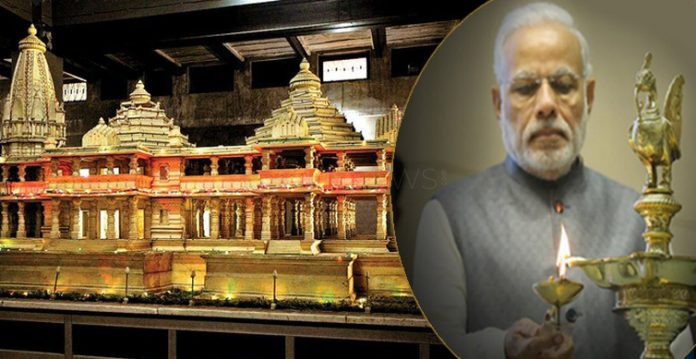After the much anticipated Supreme Court’s decision on the land in Ayodhya, the order was passed in the favour of the construction of Ram Mandir in its site. The project given to the Ram Mandir Trust, set up on the orders of the Supreme Court itself, will be commencing its construction in August, according to spokespersons.
The Lord Ram temple is going to be built in Uttar Pradesh’s Ayodhya where the Hindu God is believed to be born. The Trust given this job has invited Prime Minister Narendra Modi for the sod-turning ceremony, which marks the commencement of the construction work for the temple.
The ceremony is expected to be carried out on either the 3rd or 5th of August of this year. It hasn’t been finalized as to which among the two auspicious dates the ceremony will take place, due to delays pertaining to the pandemic.
Saturday highlighted the first formal meeting of the trust associates in Ayodhya since the orders of the SC. During the meet, its members pondered over possible dates for starting the work of the temple which is already facing postponements because of the covid crisis.
On February 5th, Prime Minister Modi had announced the establishment of the Shri Ram Janmabhoomi Teertha Kshetra Trust.
Mahant Kamal Nayan Das, the spokesperson of Trust’s president Nritya Gopal Das spoke to the media on the matter and was quoted saying, “We have suggested two auspicious dates — August 3 and 5 — for the prime minister’s visit based on calculations of movements of stars and planets.”
The Supreme Court, in November of 2019, had given a final order over the age-old dispute on the land in Ayodhya. After several hearings, its verdict stated that the land would be given to a government-run trust for building a temple of Lord Rama while Muslims would be given a compensatory five-acre “suitable” plot elsewhere in the district.
The crucial judgment in the case which involved political and religious turns and ignited riots in the country for decades was ended by the verdict passed unanimously by a bench of five judges after receiving various pleas to conclude the fights and restore religious peace in the nation. Moreover, it marked the increased security in the country to keep the disputes at bay by leaders who twisted the case for their own benefit and in turn created havoc in the country, devastating its secular policies.


